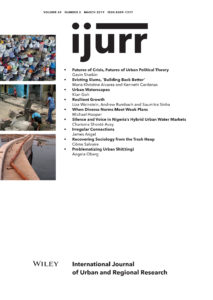In the face of rapid global urbanization, cities are increasingly at risk from major disasters. While considerable attention has been given to other aspects of urban post‐disaster recovery, less has been dedicated to rubble clearance. This article examines the dynamics of rubble clearance through a study of how the diverse organizations responding to the 2010 Haiti earthquake addressed this issue in Port‐au‐Prince. It draws on interviews with 52 organizations spanning the range of organizational types engaged in recovery efforts. Building on an evaluation of rubble clearance plans developed for other seismically at‐risk cities, the results indicate that organizations in Port‐au‐Prince lacked a shared understanding of who should coordinate, and engage in, this vital activity. The diverse organizations involved in recovery brought widely diverging norms concerning rubble clearance to a context with weak plans in place for this task. The outcome was uncoordinated action and slow progress. The article draws on the literature on interorganizational norms to contextualize its findings from Port‐au‐Prince. It concludes by arguing for efforts to generate new, shared norms concerning who should lead urban rubble clearance and, in particular, for greater support for, and deference to, local plans around this issue. Such plans would enable governments to establish robust protocols to coordinate action on this increasingly important challenge for cities.

